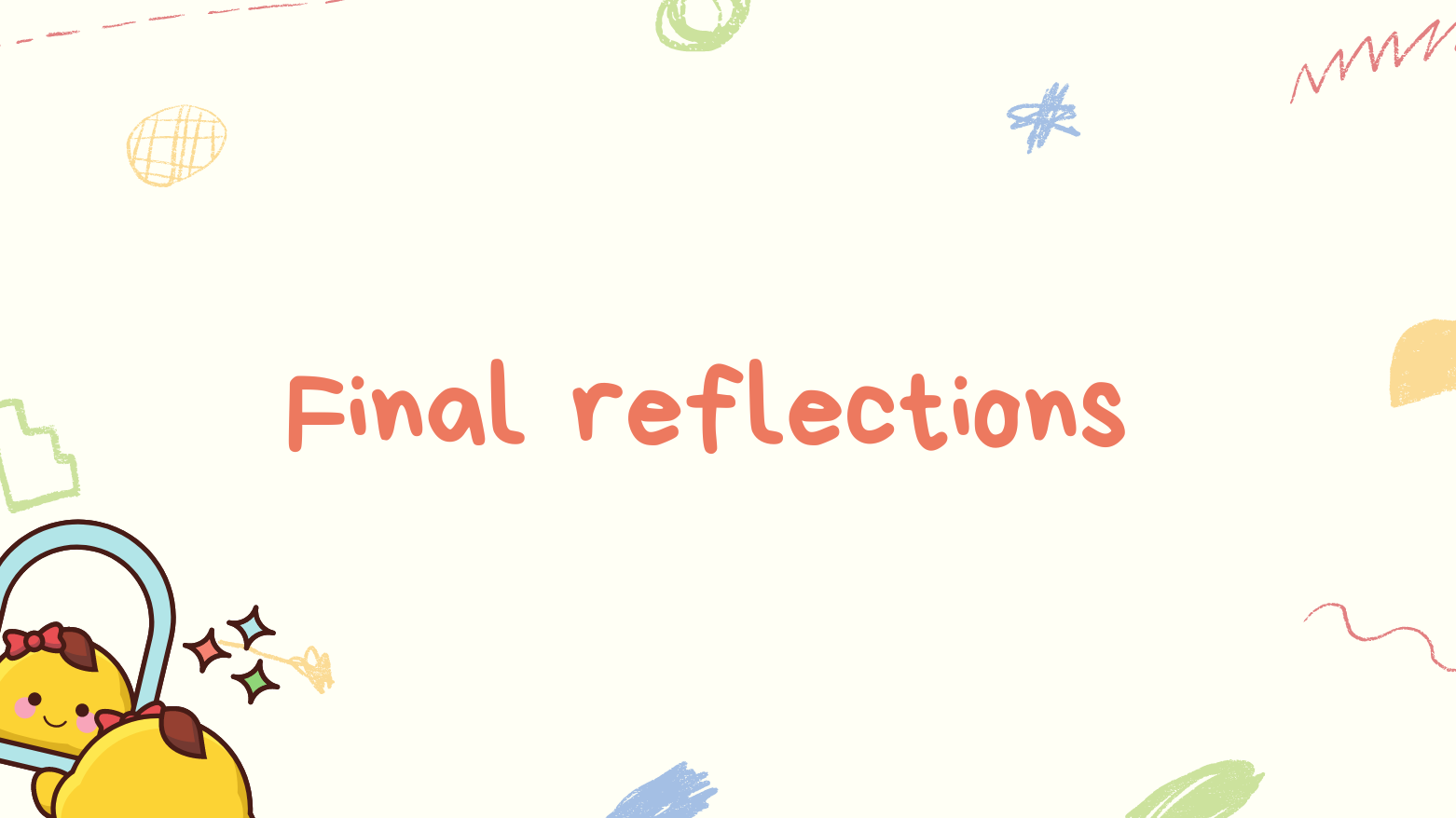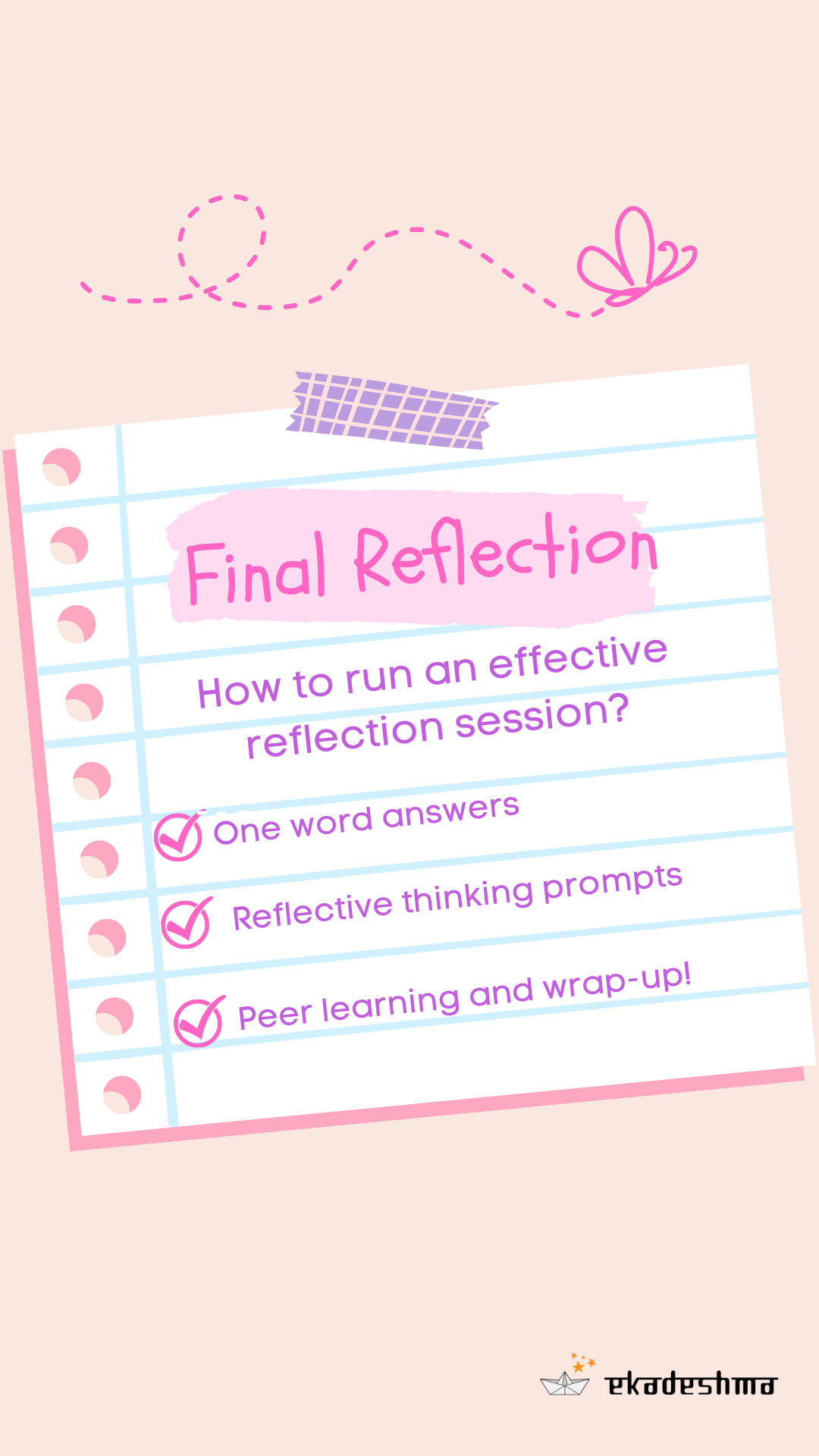Final reflections
What a beautiful read Zadie Ma and the dog who chased the moon was! Before we move on to another book, at the end of each Ekadeshma reading session, we encourage the group to ask any questions or concerns that they may still have or clarify their understanding. We then as a group discuss our final reflection.
Closing after reading a book is just as equally important as the introduction, warming up the group, or giving instructions to the group during any activities. Great! We read an entire book together and did some fun activities together but what does that mean for the individual kid?
The goal of a good closure is to encourage the kids to reflect on their learnings and an effective closure will create meaningful connections for the kids.
Sometimes though, kids aren’t so keen to ask questions or share their answers or opinions. I still dislike raising my hand or having any spotlight on me so I can absolutely relate. And as a facilitator it could be tricky to manage time as well as summarize the final reflections. So here are the three strategies I have used to run smooth ‘Final Reflection’ sessions.
1. One word answers":
Ask the group if there is one word that either summarizes what they have learned from reading this book or how they feel after reading this book. This is an effective way to manage the time but also a great ice-breaker. I usually like to start the reflection with this activity.
2. Reflective thinking prompts:
Following up on the one word answers, now we can ask the group to further elaborate on their one word answers using the reflective thinking prompts. The targeted open ended questions help kids stay on-track. For example:
What did I learn from reading this book?
Did I struggle while reading this book? What was hard?
What do you think the author wants us to know?
Who was your favorite character? Use one adjective to describe your favorite character?
Do you have any questions after reading this book?
3. Peer-learning and wrap up:
Ask the group to share their reflections and jot down all the questions the group may have. This is also a good opportunity to encourage volunteers to answer the question so that the group can learn from each other. Summarize the key reflections and learnings and voila it’s a wrap!

